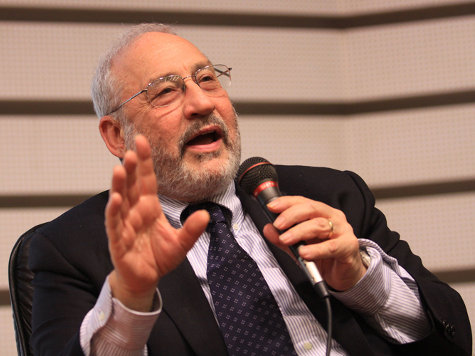The Huffington Post breathlessly reported that Joseph Stiglitz, the Nobe Prize-winning economist who is the former Senior Vice President and Chief Economist of the World Bank, says that the super-rich have gotten more expert than they ever were at getting even more wealthy, writing:
What is different today is that the 1 percent now has more knowledge about how to shape preferences and beliefs in ways that enable the wealthy to better advance their cause, and more tools and more resources to do so.
Oh, you mean that the wealthy, who tend to be smarter than the average bear, are actually spending their time with all the tools at their disposal trying to make more money? What the hell are they supposed to be doing?
One of the most dangerous men in America, that’s who.
According to Stiglitz, in his book Making Globalization Work, “George Soros has shown that the assistance provided by a single individual can make a difference; surely the concerted efforts of the West, if well directed, could do even more.”
Stiglitz is a prime adviser to George Soros. He is part of the Soros plan to phase out the U.S. dollar as the international reserve currency and bring the U.S. into a system of international socialism. He was chairman of the Council of Economic Advisors in the Clinton Administration. At the first meeting of the Socialist International Commission on Global Financial Issues, held in Vienna, Austria, on November 3, 2008, Stiglitz was the chairman.
Stiglitz has said he wants to generate hundreds of billions of dollars in what he calls “global greenbacks,” which he calls “global money” and would be one of several “innovative approaches to financing economic development [which] need to be tested.” Which countries would get these “global greenbacks,” and how would they be distributed?
Funds would be allocated to different countries on the basis of their income and population (consistent with principles of social justice, poorer countries would get a larger allocation per capita).
Funds would be distributed through international institutions, either existing ones or newly created ‘special trust funds’ established under the auspices of the United Nations…
Stiglitz has written:
Globalization entails the closer integration of the countries of the world; this closer integration entails more interdependence, and this greater interdependence requires more collective action. Global public goods, the benefits of which accrue to all within the global community become more important. These include, for instance, health (funding a vaccine against malaria or AIDS, and the environment (reducing greenhouse gas emissions, maintaining biodiversity in rainforests). These should be first priorities for the funds.
Read: global taxation. He also believes the global monetary system of the world should be reformed in order to produce funds to “promote development, fight poverty, and provide better education and health for all.” He says that global currency reserves — U.S. dollars held by various nations, especially China — should be transformed into “a new international currency.” He believes more funds could be raised by “auctioning off fishing rights, or the right to extract natural resources beneath the sea.”
Stiglitz was appointed by U.N. General Assembly President Miguel D’Escoto to review the global financial system. D’Escoto is the former foreign minister of Communist Sandinista Nicaragua who advocates Marxist-oriented liberation theology and won the Lenin Peace Prize from the old Soviet Union.
If there’s any way to ruin the incentives that the capitalist system has built in, Stiglitz will find it. And if there’s any way that he can help Barack Obama and George Soros reach their socialist goals, Stiglitz will find that, too.

COMMENTS
Please let us know if you're having issues with commenting.